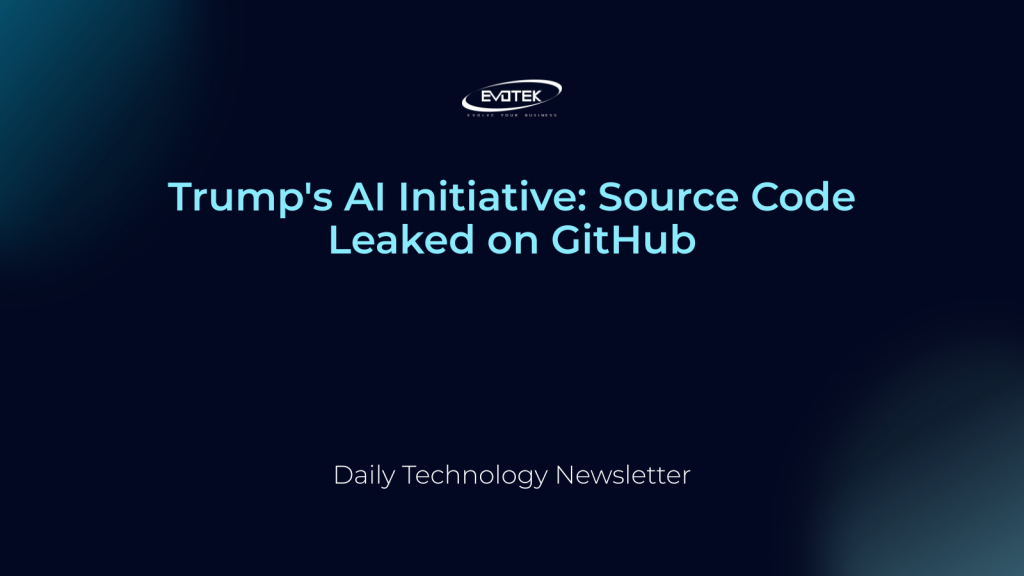Plans for the Trump administration’s ambitious AI initiative were inadvertently exposed via a public GitHub repository. The repository, intended to serve as a central hub for federal agencies integrating AI, has since been taken down, but not before details were captured.
AI.gov: A Central Hub for Government AI
The US General Services Administration (GSA), through its Technology Transformation Services (TTS) group, had been developing “ai.gov,” a website designed to be the go-to resource for government agencies adopting AI technologies. The project gained momentum under TTS chief Thomas Shedd, formerly of Tesla, who envisioned a government operating with an “AI-first” strategy.
Launch Date and Key Components
According to the now-hidden GitHub page, AI.gov was slated for a July 4 launch. The platform was designed with three core components:
- AI Chatbot: Purpose unspecified but intended for public interaction.
- All-in-One API: A centralized API allowing agencies to connect to AI models from major providers like OpenAI, Google, and Anthropic.
- CONSOLE: A monitoring tool for agencies to track AI usage and adoption across their departments.
CONSOLE aimed to provide real-time insights into how employees utilize AI tools and their preferences.
FedRAMP Compliance and Security Concerns
The leaked documentation suggests GSA is prioritizing FedRAMP-certified vendors, with Amazon Bedrock being a primary provider. However, the inclusion of Cohere, an enterprise AI firm lacking FedRAMP certification, raises potential compliance questions.
The site also intended to publish model rankings based on undisclosed criteria, potentially guiding agencies in their AI adoption strategies.
Government’s Push for AI Adoption
The Trump administration has been vocal about promoting AI adoption across the federal government, aiming to streamline operations and replace tasks previously performed by federal employees. This initiative coincides with ongoing debates about AI regulation and potential security risks associated with handling sensitive citizen data.
Despite attempts to reach out to those involved, no official comment was received before the repository was secured. The public exposure highlights the challenges of managing sensitive project information in the age of open-source platforms.
Update: While initially appearing removed, the GitHub repository has been archived and is still accessible for those interested in examining the project’s initial plans here.

 日本語
日本語 한국어
한국어 Tiếng Việt
Tiếng Việt 简体中文
简体中文